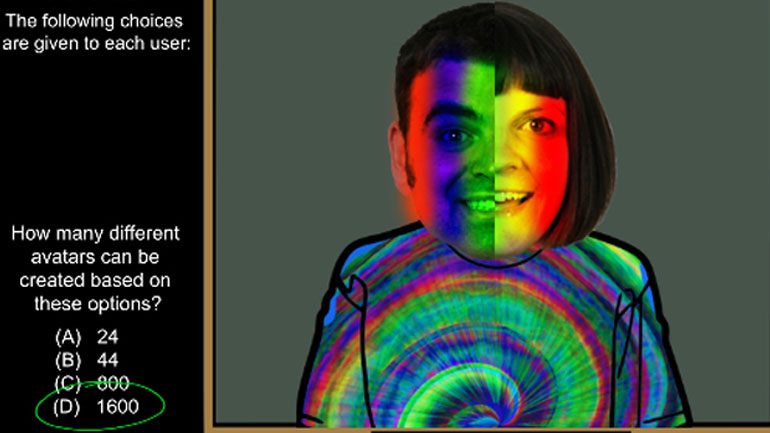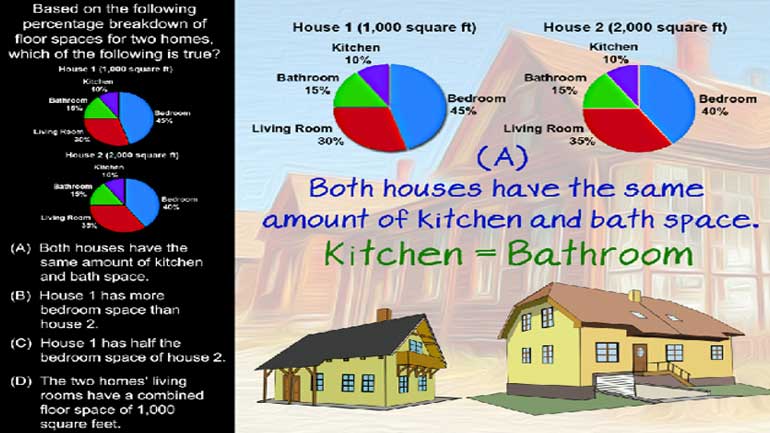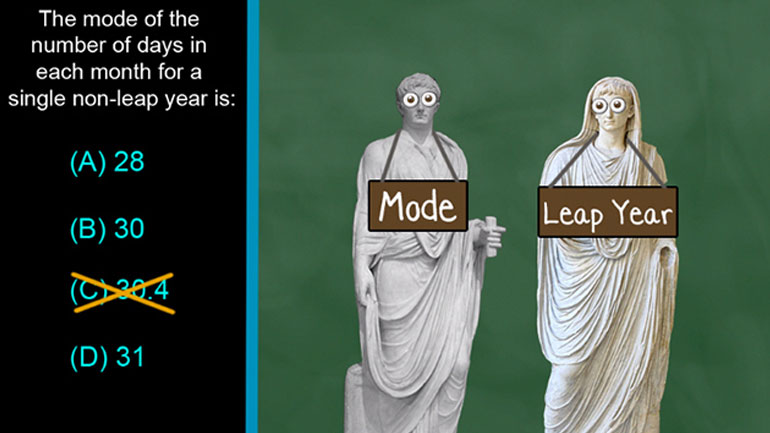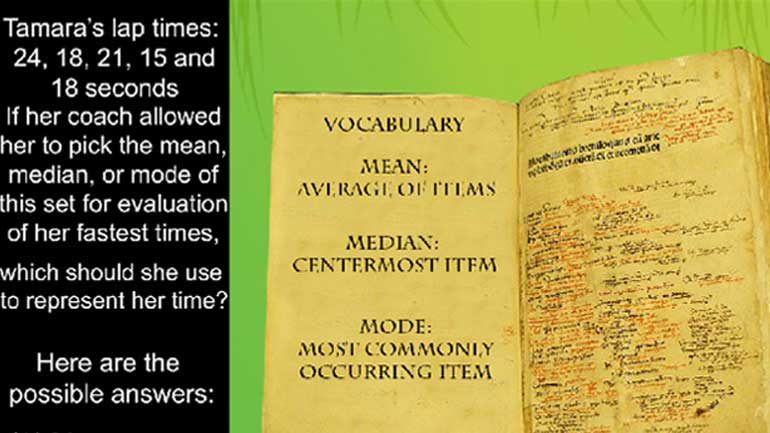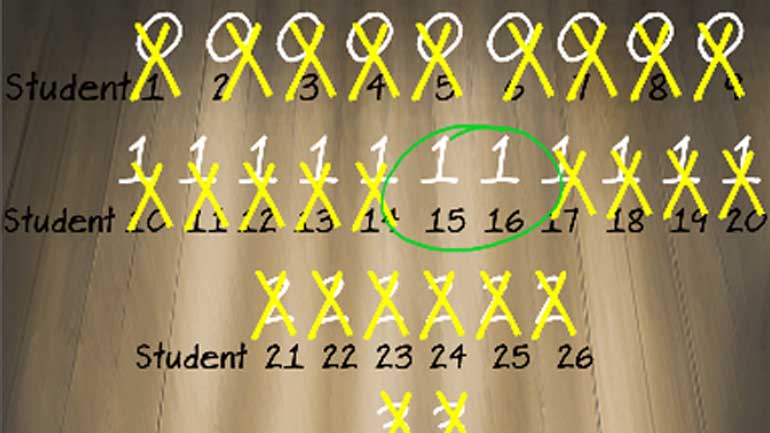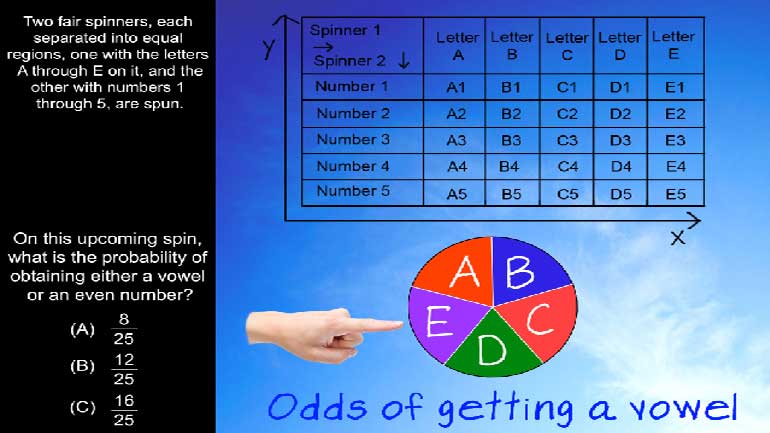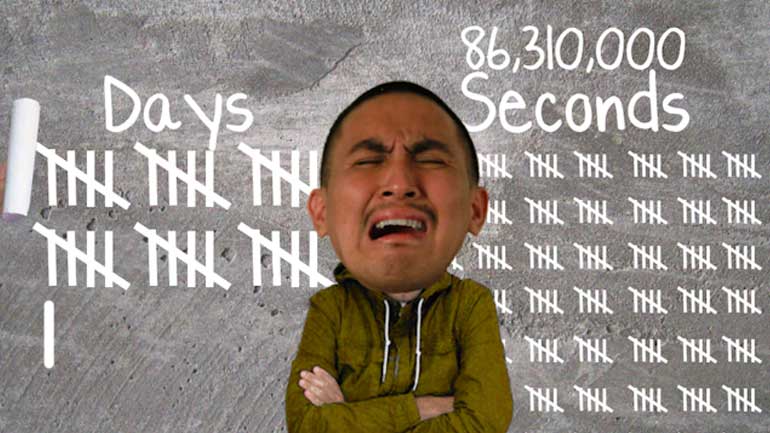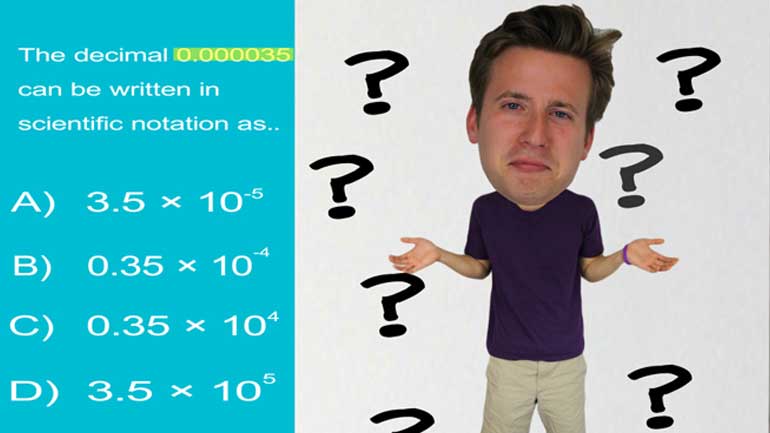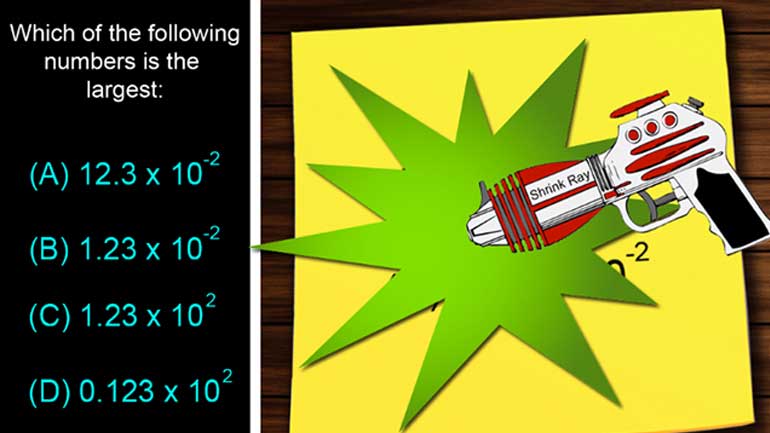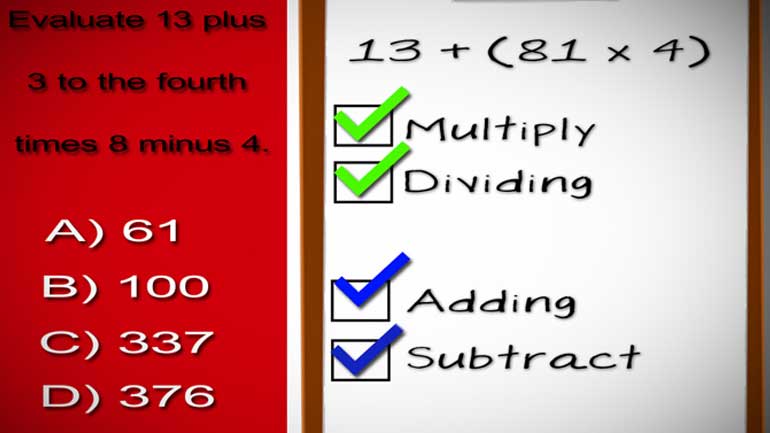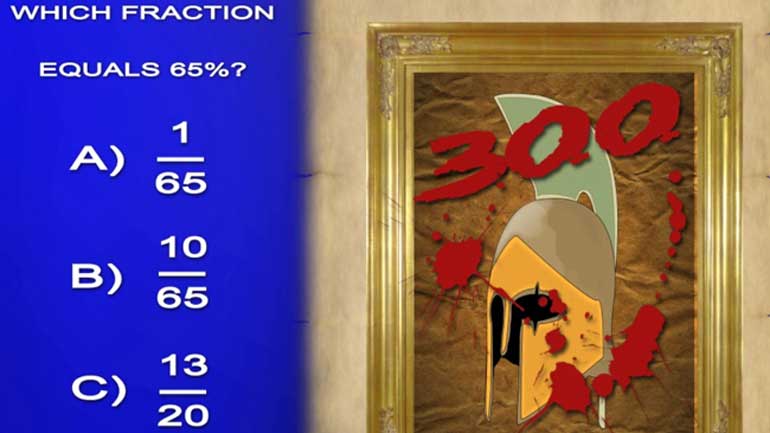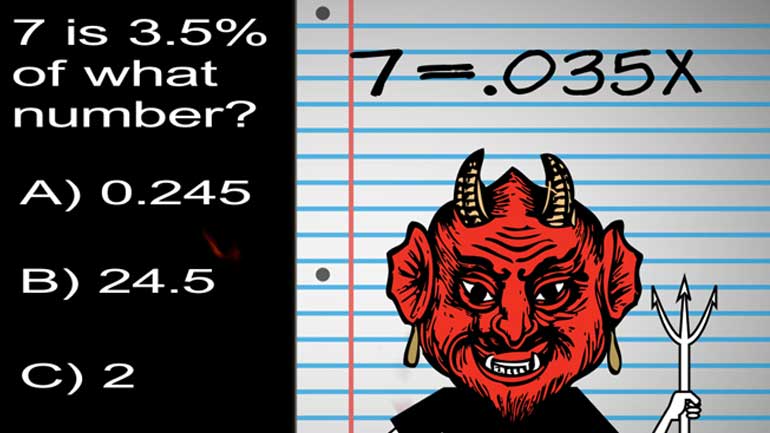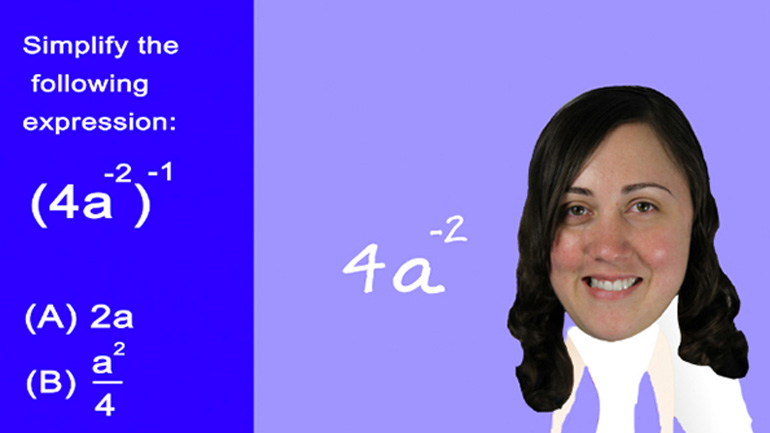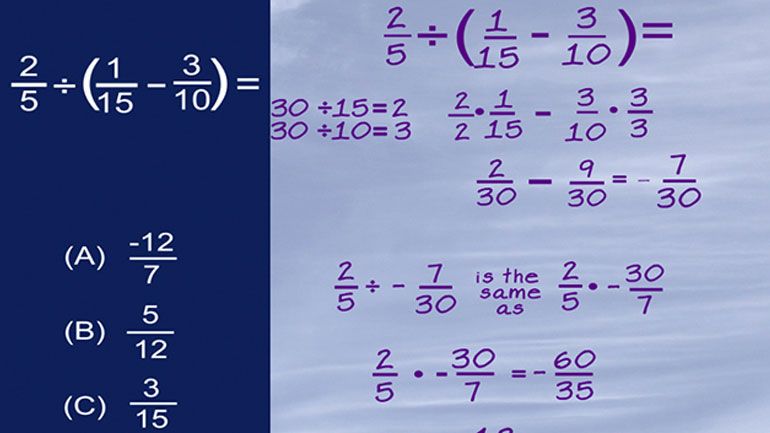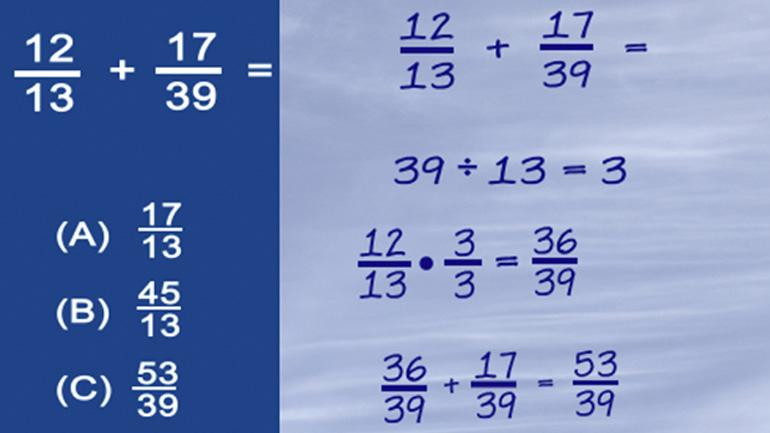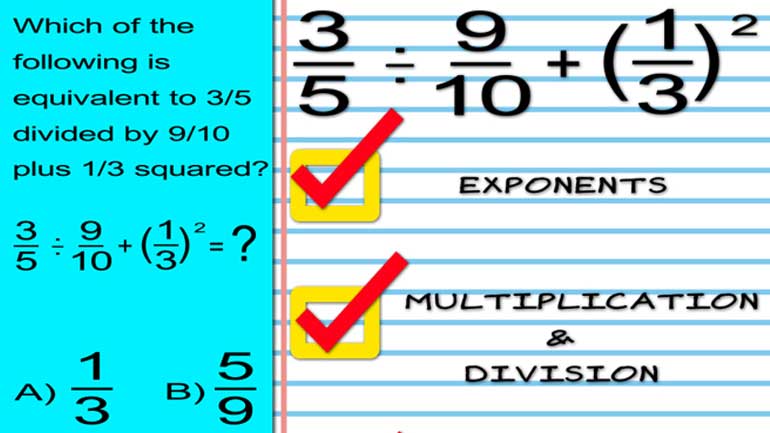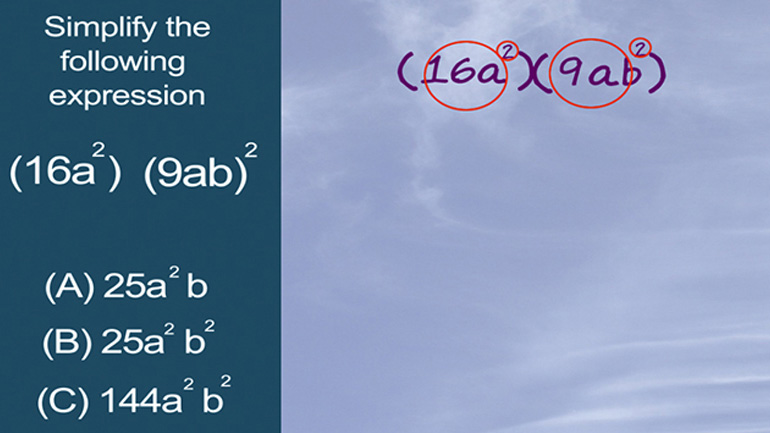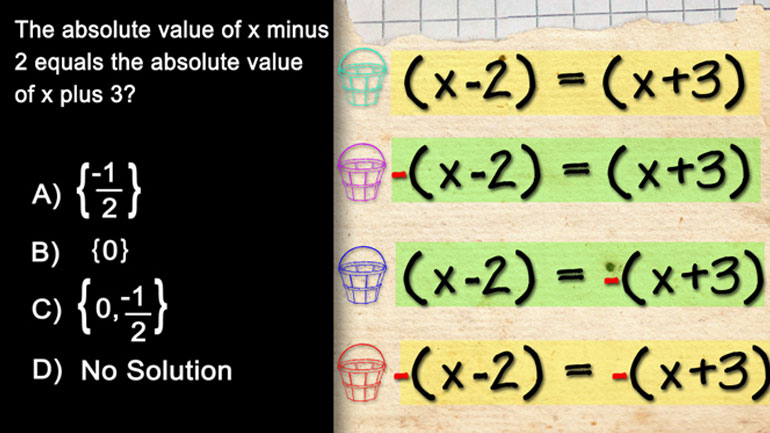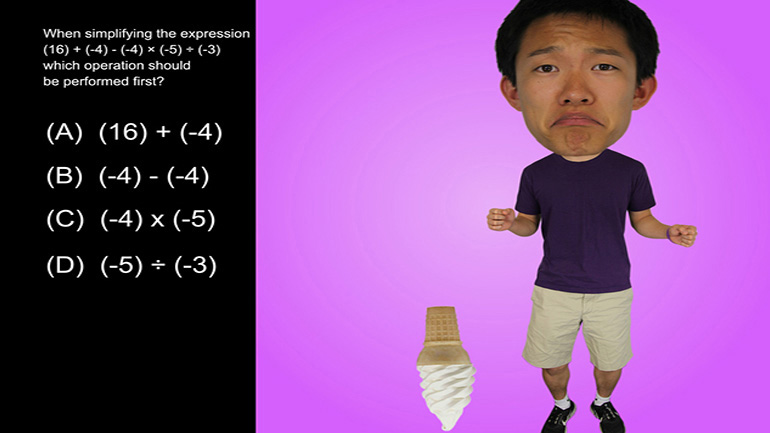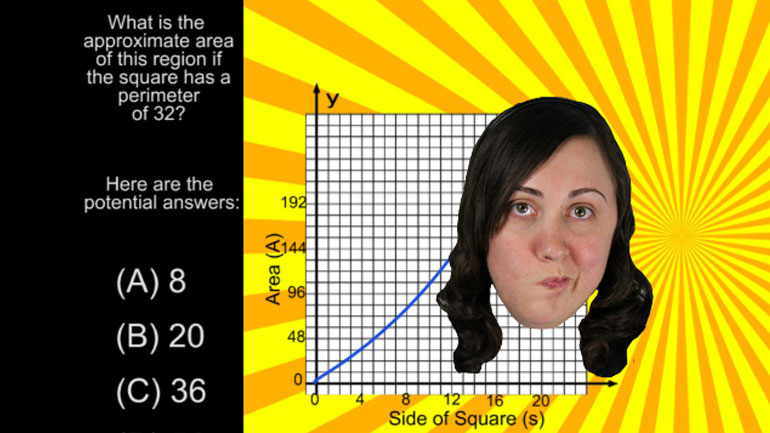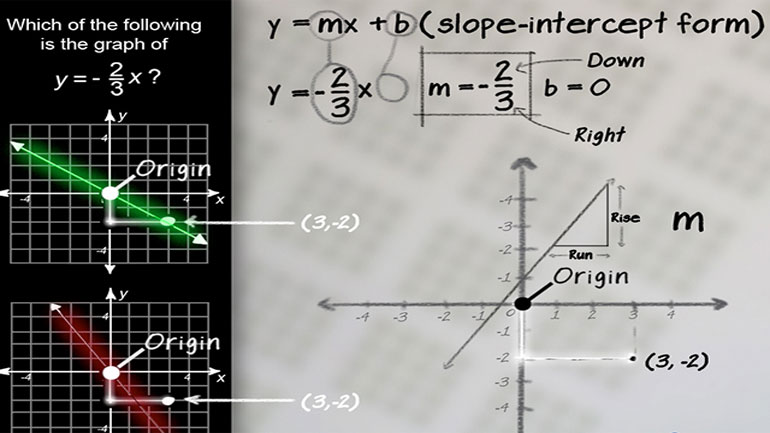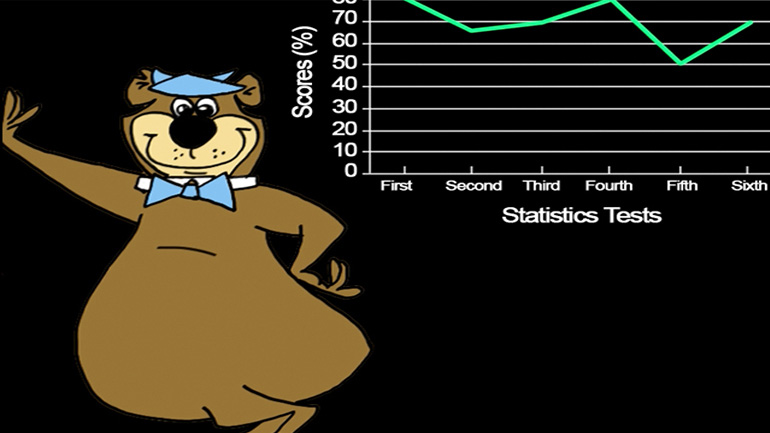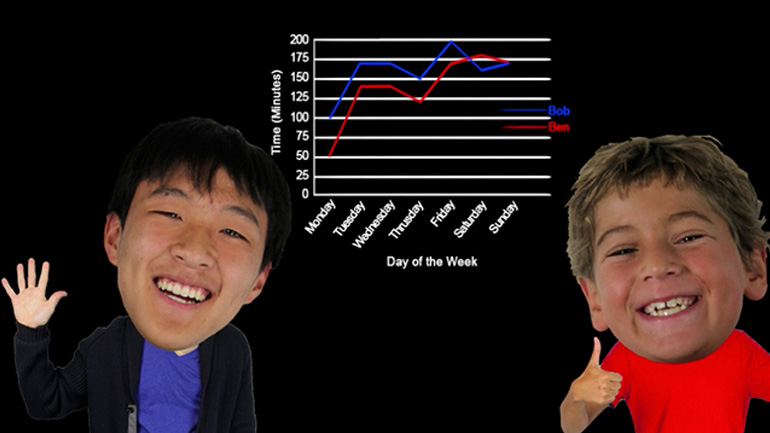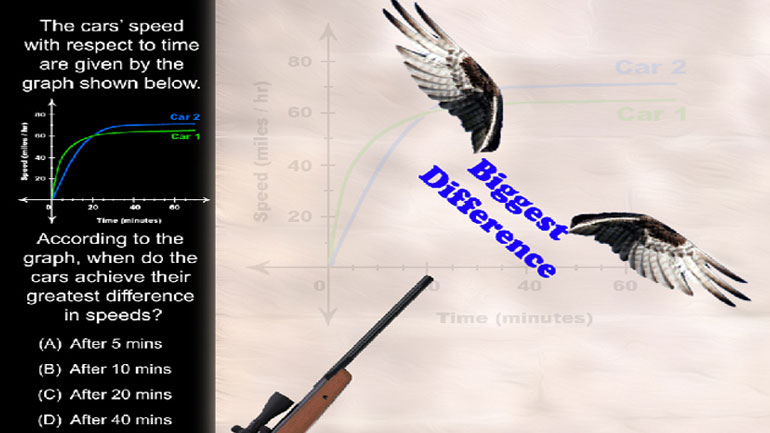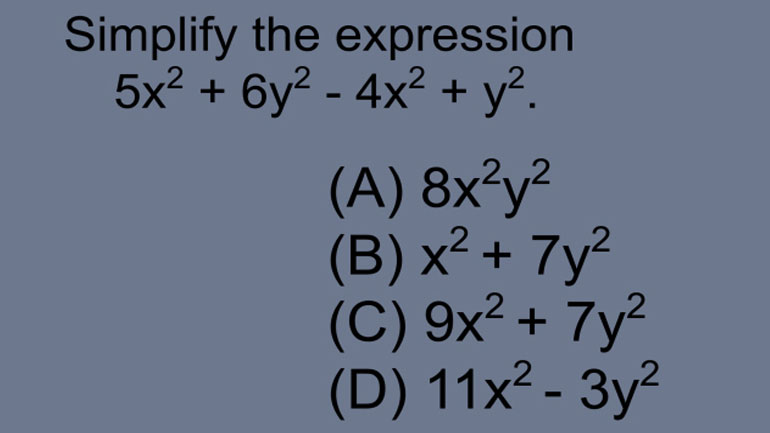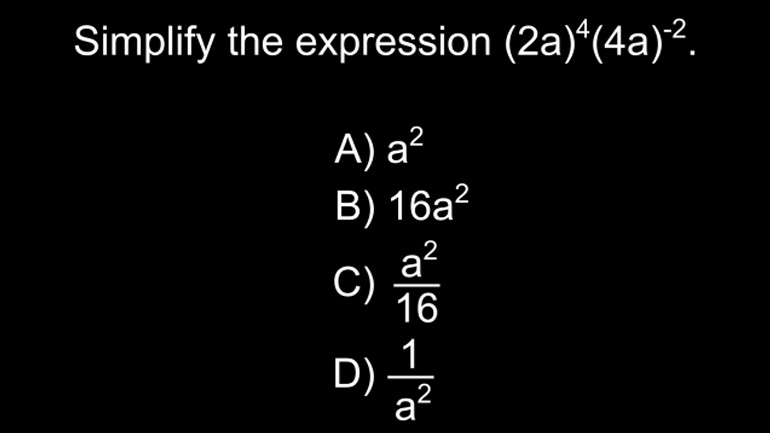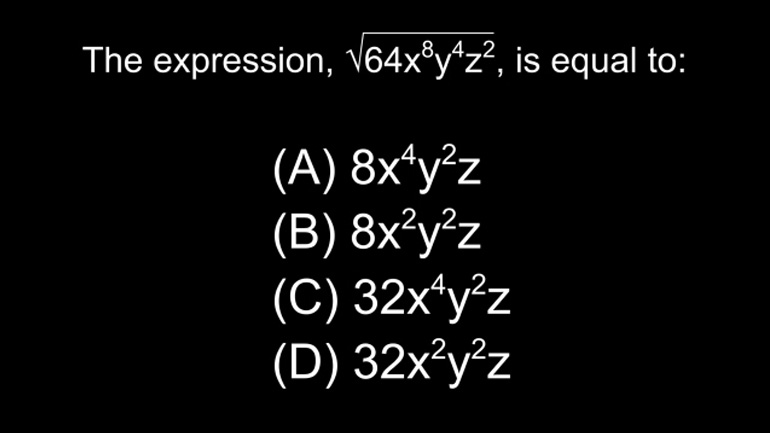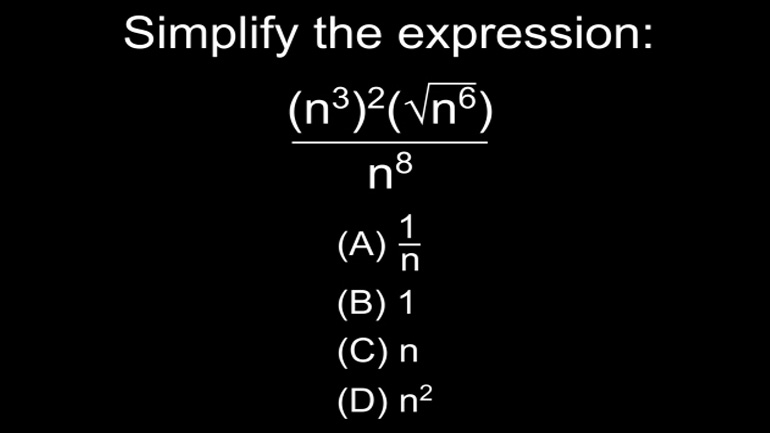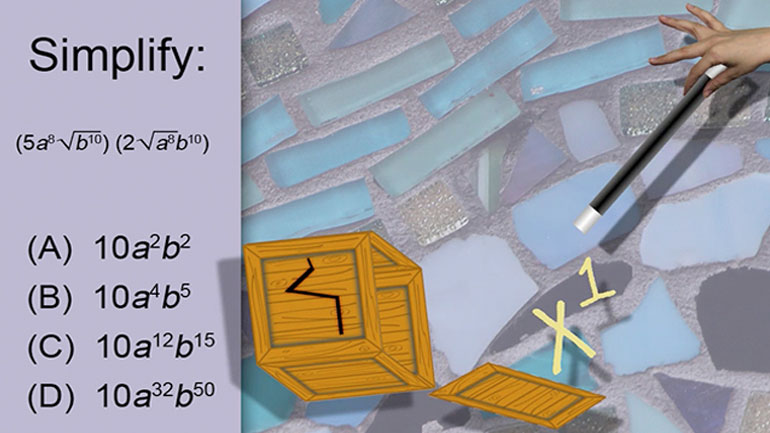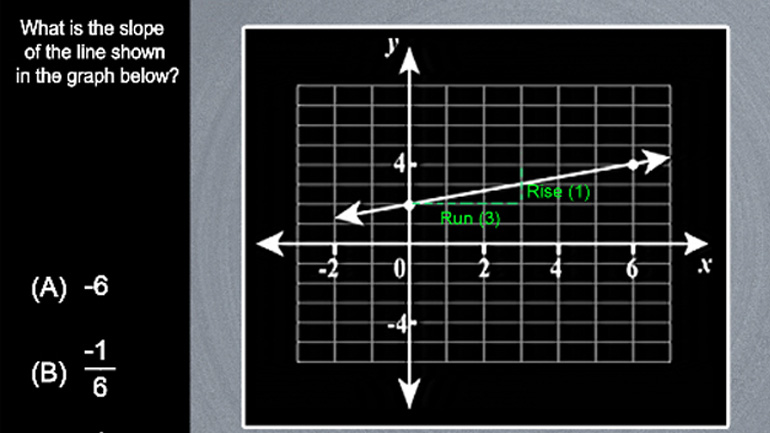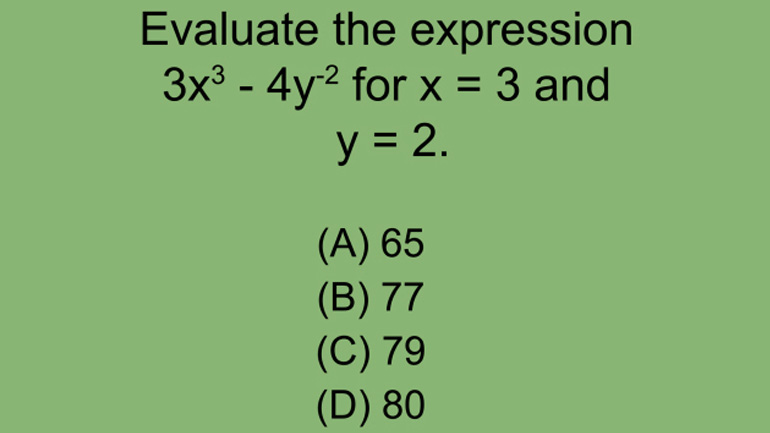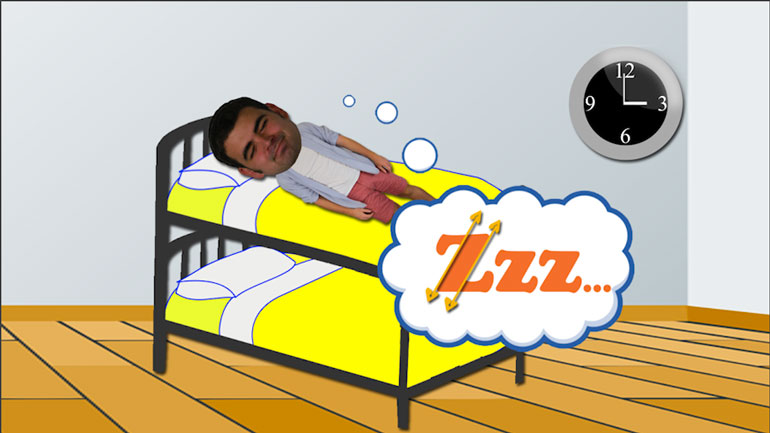ShmoopTube
Where Monty Python meets your 10th grade teacher.
Search Thousands of Shmoop Videos
Math Videos 206 videos
Statistics, Data, and Probability I: Drill Set 2, Problem 2. If this trend continues, what will be the price in week 7?
Statistics, Data, and Probability I: Drill Set 2, Problem 3. Which of the following statements is true?
Statistics, Data, and Probability I: Drill Set 2, Problem 4. Which of the following statements is true?
CAHSEE Math 6.3 Algebra and Functions 235 Views
Share It!
Description:
Algebra and Functions: Drill Set 6, Problem 3. How many fritters are made during the typical breakfast hours between 6:00AM and 11:30AM at this bakery?
Algebra and Functions: Drill Set 6, Problem 3. How many fritters are made during the typical breakfast hours between 6:00AM and 11:30AM at this bakery?
Transcript
- 00:03
Here's your shmoopy question du jour...
- 00:06
Each morning, Beanstalk Bakery is able to churn out a dozen people fritters every 15 minutes.
- 00:12
How many fritters are made during the typical breakfast hours between 6 am and 11:30 am at this bakery?
- 00:19
And here are the potential answers...
- 00:21
Before we spoil the ending, hit pause and try it yourself.
Full Transcript
- 00:25
So this question is asking us to segment hours into sub sections and apply them as part of
- 00:30
a rate problem. If we think through the question...
- 00:34
...the fritters start coming out of the oven at 6 am and continue for 1... 2... 3... 4...5 and a half hours.
- 00:41
Or, in decimalese... 5.5 hours.
- 00:45
There are four 15-minute segments in an hour, so we multiply 5.5 by 4 to get 22.
- 00:52
There are 12 fritters per 15 minute segment...
- 00:55
...so we multiply that 12 by the 22 segments to get 264 fritters.
- 01:00
Our answer is C.
- 01:01
The moral of this story? Never leave your breakfast unattended.
Related Videos
CAHSEE Math: Algebra and Functions Drill 5, Problem 3. Solve the equation.
The video will show you how to plot points in 3D using the axes of the 3D coordinate system. Make sure you're wearing your special glasses for this...
When graphing inequalities, you graph the line, shade the corresponding side, and plug in the point. The end!
One formula to rule them all, one formula to find them. One formula to bring them all, and in the darkness bind them. Or something like that. I...





